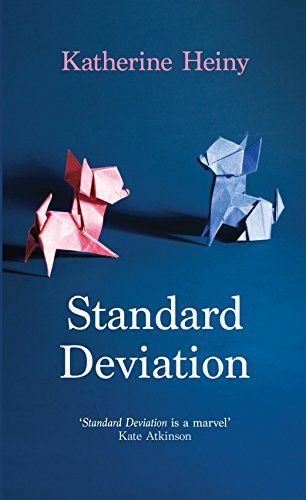
Standard Deviation
The celebrated author of Single, Carefree, Mellow, returns with her debut novel - a rueful, funny examination of love, marriage, infidelity, and origami. Simultaneously hilarious and heartbreaking, this sensational debut will appeal to fans of David Nicholls, Nick Hornby, Nora Ephron and Lorrie Moore Graham Cavanaugh's second wife, Audra, is everything his first wife was not. She considers herself privileged to live in the age of the hair towel, talks non-stop through her epidural, labour and delivery, invites the doorman to move in and the eccentric members of their son's Origami Club to Thanksgiving. She is charming and spontaneous and fun but life with her can be exhausting. In the midst of the day-to-day difficulties and delights of marriage and raising a child with Asperger's, his first wife, Elspeth, reenters Graham's life. Former spouses are hard to categorize - are they friends, enemies, old flames, or just people who know you really, really well? Graham starts to wonder: How can anyone love two such different women? Did he make the right choice? Is there a right choice?
Reviews
Cindy Lieberman@chicindy
Moray Lyle McIntosh@bookish_arcadia
Brady@bradycraig
Emma Hak-Kovacs@18emkova05
Andrea Hak-Kovacs@andreareads
Sara Holman@saralovesbooks
Erin G.@toughcakes
Megan Gardner@mmgardner
Allison Dempsey@alliedempsey
Sara Sunshine@sarasunsh
Connie@cludecoeur
Sam Missingham@samatlounge
Nicole Vanderbilt@nmvandy
Sapphire Bates@bookbodega
Lis@seagull
Sheila Masterson@starsagespirit
Meghan Todd@megt0dd
Lisa Sieverts @agilelisa
Julie Berman@bookies
Joanna Kacz@jk